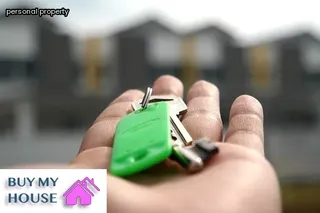Tenant abandonment is a common issue for landlords in Florida. The laws in the state provide tenants with certain rights, however they also provide landlords with protections against abandoned rental property.
It is important to understand what constitutes tenant abandonment and what legal remedies are available to landlords who must deal with it. Generally, when the tenant has vacated the premises without providing proper notice or paying rent, this constitutes tenant abandonment.
Landlords may be able to take possession of the property and may also be eligible for financial compensation through court proceedings. Additionally, if there is evidence that the tenant has left personal belongings behind or otherwise damaged the property, this can be used as evidence in court.
Landlords should also be aware of their right to collect unpaid rent and any other payments due from the tenant. Understanding these legal remedies can help ensure that landlords have appropriate recourse should their tenants abandon the property.

When it comes to tenant abandonment in Florida, it is important for landlords to understand the difference between abandonment and eviction. Eviction is a legal process that requires landlords to file an unlawful detainer lawsuit in court.
This involves giving notice to the tenant, initiating a court process, obtaining a judgment from the court, and then executing that judgment. On the other hand, abandonment occurs when tenants voluntarily leave their rental property without proper notice or formal eviction proceedings.
In this situation, landlords will need to take legal action to protect their rights and interests as well as secure the property. Landlords must be aware of applicable laws such as dealing with abandoned property and recovering unpaid rent.
They must also make sure they are following all applicable rules and regulations while navigating through the complex process of tenant abandonment in Florida.
When a tenant abandons their rental property in Florida, the landlord has legal rights for how to handle the abandoned property. In most cases, the landlord can enter the premises and reclaim possession of the property after giving notice to the tenant, as long as it does not constitute a breach of peace.
The landlord may also be able to recover damages from the tenant for rent that was due during the period of abandonment, depending on the terms of the lease agreement. After taking possession of the abandoned property, landlords are required by law to properly dispose of or store any personal items left behind by tenants.
Furthermore, landlords must return any security deposits taken before issuing an itemized list of deductions to tenants within 15 days after they have vacated their units. Landlords must also follow certain guidelines when selling or disposing of property left behind by tenants who have abandoned their rental unit in Florida.

When it comes to tenant abandonment in Florida, landlords must take the appropriate steps to ensure that all abandoned property is identified and removed as soon as possible. To do this, they should establish a protocol that can be followed each time a tenant leaves without giving notice or their whereabouts are unknown.
It's important for landlords to check the unit thoroughly for any personal items left behind by the tenant, document anything found inside, and secure the premises before changing the locks. In some cases, landlords may also need to post a notice of abandonment with instructions for tenants on how to reclaim their property within a given timeframe.
Additionally, it's important for landlords to take pictures of any abandoned items and store them for future reference if necessary. Establishing clear procedures and following them every time is key in order to avoid any potential legal issues associated with tenant abandonment in Florida.
When it comes to tenant abandonment in Florida, there are several solutions available to landlords for resolving disputes. Before taking any action, landlords should always seek legal advice and consider the rights of their tenants.
Landlords may choose to pursue a formal eviction process, which involves making use of the court system and adhering to the relevant laws. Alternatively, they may opt for an informal resolution such as offering mediation between the parties or reaching an agreement on a payment plan.
In cases where tenants have abandoned personal items in the rental property, landlords can also work with a professional service to dispose of these items appropriately. Finally, landlords should be aware that if their tenants abandon their property without providing notice or paying rent owed, they can turn to security deposit funds in order to cover lost income.

When it comes to rental properties, it is imperative for landlords in Florida to address tenant abandonment issues as soon as possible. If a tenant abandons the property without warning or notice, legal remedies are available to landlords in order to protect their rights and ensure that their rental income remains consistent.
This can include sending a Notice of Termination of Tenancy, filing a Complaint for Unlawful Detainer, and if necessary, filing an Eviction Action with the local court. In addition, if there are damages caused by the tenant’s abandonment of the property, landlords have the right to pursue monetary compensation from the tenant.
It is important for landlords to know their rights and take swift action when addressing tenant abandonment in Florida so they can protect their investments and maintain stability within their rental properties.
When it comes to other real estate matters in Florida, landlords must be mindful of numerous laws and regulations. Landlords should understand the difference between a tenant who has been evicted and one who has abandoned the property.
If a tenant has abandoned their rental unit, the landlord is not required to follow the same eviction procedures as they would if they were evicting them. However, they must take certain steps to protect their interests in the property such as ensuring that all of the tenant’s belongings are secured and stored offsite or disposed of properly.
Additionally, landlords should consider filing an “abandonment action” with their local court in order to obtain a judgment for any unpaid rent or damages associated with the abandonment. Finally, landlords may be able to recoup some of their financial losses by taking advantage of any insurance policies which may cover damage caused by tenants abandoning a rental agreement before its completion.
By understanding these legal remedies available to them, landlords can properly handle tenant abandonment in Florida and make sure that their rights are protected.

When tenants leave a rental property without notice, not only does it create an added burden for the landlord, but it may also leave behind personal possessions. To ensure that landlords have the legal rights necessary to handle this situation in Florida, it is important to understand the state’s tenant abandonment laws.
Landlords must be aware of their legal remedies and responsibilities when dealing with tenants who have left behind property. Before disposing of any abandoned items, landlords must conduct a thorough inventory of all belongings left on the premises.
It is also important to check any existing lease agreements as they may specify how the landlord should go about handling tenant abandonment. Additionally, it is wise to consult a local attorney if there are any questions or concerns regarding what can be done with the abandoned property in order to protect yourself from potential liability.
If items are found to be abandoned, landlords should take appropriate action such as disposal or donation while following all applicable regulations and laws. Taking steps such as these will help keep landlords safe and informed when dealing with tenant abandonment in Florida.
If you are a landlord in Florida dealing with tenant abandonment, there is professional help available to guide you through the eviction process. An experienced property management company or attorney can provide expert advice on how to proceed.
They can explain the legal requirements for initiating an eviction and assist with paperwork, such as 3-Day Notices and Summons and Complaints. In addition, they can advise landlords on their rights to possession of the property under Florida law, including the right to enter and inspect the premises before filing any action.
The professional help available can also provide information regarding other remedies available to recover damages resulting from tenant abandonment such as security deposit retention, lien placement against personal property left behind by tenants, and collection of unpaid rent.

Finding advice about rental property issues can be tricky, especially if you are a landlord dealing with tenant abandonment in Florida. Seeking the counsel of an attorney may be your best option for navigating the legal remedies available to landlords in these situations.
State bar associations provide referrals to licensed attorneys who specialize in landlord-tenant law and can offer advice on how to proceed if a tenant has abandoned your rental property. Real estate agents or property management companies may also provide valuable resources as they have experience and knowledge of local laws that apply to rental properties.
Educating yourself on local ordinances, filing eviction proceedings, and understanding tenant rights are all important steps to take when dealing with a tenant's abandonment of your rental property. Additionally, online discussion forums and websites dedicated to landlord-tenant issues can provide answers to questions you might have about handling abandonment legally in Florida.
Using legal representation during an eviction process can be a beneficial route for landlords in the case of tenant abandonment in Florida. The landlord should consult with an experienced attorney to ensure that all necessary documents are correctly filled out and filed within the timeline specified by the state laws.
It is important to understand that while an attorney can provide valuable guidance, they cannot represent the landlord in court. A landlord must be prepared to answer questions and make their own arguments in court if needed.
An experienced lawyer can provide advice on how to prepare and present a strong case, as well as what evidence needs to be provided in order for a successful outcome. Furthermore, they can review the relevant codes and statutes related to the particular situation, helping landlords understand their legal rights more clearly.
Hiring legal representation during an eviction process can be expensive, but it is worth considering if pursuing legal action is necessary for evicting tenants who have abandoned their rental property in Florida.

When it comes to tenant abandonment in Florida, landlords must be aware of the legal implications that this situation can bring. When a tenant leaves behind personal property, there is a question of whether or not it will be considered abandoned or if the tenant has rights to reclaim it.
Knowing when personal property is considered abandoned is vital for landlords in order to handle the situation appropriately and legally. Generally, when tenants vacate without notice and leave furnishings and belongings behind, it is likely that these items will be considered abandoned.
Landlords should take steps to document the items left behind in order to protect themselves from any potential liability. Clear communication with tenants is also key in helping both parties understand their rights and responsibilities during this process.
Additionally, if rent payments have been left unpaid by the tenant, landlords may need to pursue other options such as filing an eviction lawsuit in order to receive damages.
Tenant abandonment can be a difficult situation for landlords in Florida to navigate, but understanding the legal steps involved in removing abandoned property from a rental unit can help make the process go more smoothly. In order to legally remove any abandoned property from the rental unit, landlords must first prove that the tenant has actually abandoned the space and provide written notice of their intention to remove any remaining property.
Once this notice is given, landlords have the right to begin disposing of any personal items left in the rental unit. In some cases, it may even be necessary to apply for a court order to gain access to the property, depending on whether or not the tenant has left an address where they can be reached.
Landlords also need to make sure they are taking appropriate measures when it comes to storing any personal items that are removed from the rental unit, as there may be certain laws and regulations governing how long these items can be kept before disposal. By taking these steps and making sure they understand all of their rights as a landlord in Florida, owners should have no problem removing all abandoned property from their rental units without experiencing any legal complications down the road.

When assessing whether an abandoned property has value or should be disposed of, landlords in Florida must consider a few key factors. First, the landlord must determine if the tenant’s personal belongings left behind have any value and can be sold to recover lost rent.
If the amount of money gained from selling the items does not cover the outstanding rent, then other legal remedies may be available to help recoup costs. In addition to selling any abandoned items, landlords should also review their state laws regarding tenant abandonment as some states allow landlords to claim the security deposit immediately after a tenant abandons a rental property.
Furthermore, if any damage was done to the rental unit due to the tenant’s actions, such as vandalism or destruction of property, then it may be possible for landlords to pursue legal action against that tenant for repair costs. Ultimately, how landlords in Florida handle tenant abandonment will depend on their individual situation and what legal remedies are available.
In Florida, landlords are legally responsible for the safekeeping and disposition of unclaimed or abandoned items left behind by tenants following their abandonment of the rental property. Depending on the circumstances, a landlord may be required to store these items for a certain amount of time before disposal or sale.
In other cases, the landlord may have immediate access to these items. As such, it is important for landlords to understand their rights and responsibilities when it comes to handling such items from an abandoned rental property.
Landlords must take steps to notify tenants of their intent to dispose of any unclaimed or abandoned possessions prior to taking action. Furthermore, they must adhere strictly to local laws regarding disposing of such personal possessions.
By doing so, landlords can avoid potential legal issues with former tenants while still protecting their interests in the case of tenant abandonment in Florida.

When dealing with tenant abandonment in Florida, it is important to take the necessary steps to protect any valuable items left behind by the tenant. As a landlord, securing these items is essential to ensure they are not damaged or stolen.
Firstly, make sure that all items are properly inventoried and recorded in writing. This will provide proof of ownership and help avoid disputes if there are multiple tenants involved.
Secondly, for large items such as furniture and appliances, consider storing them in a secure facility such as a self-storage unit or an offsite warehouse. Additionally, if possible use locks on any doors or cabinets where these items may be stored.
Finally, always follow legal protocols when handling abandoned property such as contacting local law enforcement to file an eviction notice or using certified mail to notify the tenant of their rights and obligations under Florida law.
When dealing with tenant abandonment in Florida, it is essential to document any conversations between the landlord and the former tenant regarding their left behind items. This includes keeping detailed notes of all discussions that have taken place in person, over the phone or via email.
Additionally, it is important to keep records of any attempts to contact the tenant, such as certified mail sent or door hangers posted. Landlords should also take pictures or videos of any belongings that have been left behind in the rental property, as this serves as further documentation that can be used during legal proceedings.
Furthermore, landlords should consider obtaining a written statement from current tenants concerning what belongings were left behind by previous tenants and how long they have remained on the property. Finally, landlords must ensure that any documents or agreements created are signed and dated for future reference and proof of agreement between both parties.

If a former tenant reclaims belongings after they have been removed from the rental unit, there are several legal remedies available to landlords in Florida. According to the Florida Statute 83.
67, landlords are legally permitted to dispose of property abandoned by a tenant if they provide notification of their intent to do so at least five days before the actual disposal, which must be done in a commercially reasonable manner. Landlords have the right to charge tenants for the cost of storing and disposing of any abandoned property, although they cannot keep or sell any items that have a significant sentimental value.
In addition, Florida law requires that landlords return any security deposit within 15 days following a tenant's abandonment of the rental unit. When it comes to filing for eviction due to abandonment, landlords must follow all local procedures and can only evict tenants if all proper notices and court documentation has been served and received.
To ensure compliance with all applicable laws and regulations related to tenant abandonment in Florida, landlords should always consult an experienced real estate attorney before taking action against an abandoned tenant.
When a tenant abandons a rental property in Florida, the landlord is left to handle the situation alone. To make matters worse, if the tenant leaves behind personal items it can create additional issues.
In such cases, it is important to understand that legal remedies are available. That said, there are other options for settling disputes related to items left behind by a tenant beyond going through court.
For example, landlords can send a letter to the tenant’s last known address informing them of the items and try to negotiate a resolution. Additionally, tenants may be able to donate the items or sell them and use the proceeds toward any remaining rent owed.
Finally, landlords should also consider working with local law enforcement or even hiring an attorney if necessary to help navigate this process and protect their rights as well as those of their former tenants.

When a tenant abandons the leased premises in Florida, it is important for the landlord to know when it is appropriate to seek legal counsel. In these cases, the landlord may need guidance on how to deal with the tenant’s belongings left behind.
Florida law requires that landlords provide written notice of their intention to dispose of any abandoned personal property and allow the tenant a reasonable amount of time to retrieve it. If they fail to do so and proceed with disposal or sale without proper notification, they may be liable for damages incurred by the tenant.
Additionally, if a tenant has left behind items that have sentimental value or are essential for day-to-day living, like furniture or appliances, then a court may require the landlord to store these items and make them available for retrieval. It is important for landlords in this situation to consult an experienced attorney who can help them navigate these delicate legal matters in order to protect themselves from potential liability.
In Florida, a tenant is legally considered to have abandoned their rental property when they have been gone for at least seven days without prior notice or payment of rent. This legal definition of abandonment applies regardless of whether the tenant has officially ended their lease agreement.
After the seven day period has passed, landlords can take steps to reclaim the rental property and protect their financial interests. Such steps may include filing an Unlawful Detainer Action with the court, giving proper notice to tenants, and acquiring a writ of possession from the court.
It is important for landlords to understand and follow all relevant laws and regulations in order to ensure that they are taking appropriate measures when handling tenant abandonment in Florida.

When a tenant leaves behind items in a rental property after vacating, it can be difficult for landlords to know what to do. In Florida, under the Landlord Tenant Act, landlords have certain legal remedies for dealing with tenant abandonment and abandoned property.
Landlords must first attempt to locate the tenant and provide them with written notice of their intention to dispose of the items. If the tenant cannot be located, landlords may take possession of the items and store them at a location that is convenient to both parties.
The landlord must then provide written notice of their intent to auction off or otherwise dispose of the items if they are not retrieved within 15 days. If no one claims the belongings within 15 days, then the landlord is legally allowed to sell or dispose of them as they see fit.
In Florida, abandonment of property is defined as when a tenant vacates the rental premises without providing proper notice or obtaining written consent from the landlord.
A tenant may also be considered to have abandoned the property if they are no longer using it for residential purposes, have not paid rent for an extended period of time, and/or have removed most of their belongings from the premises.
Additionally, if a tenant has been served with an eviction notice and fails to respond within a certain timeframe then this could be considered abandonment as well.
Ultimately, it is up to the landlord's discretion when determining whether or not abandonment has occurred.
Yes, a landlord can take possession of an abandoned property in Florida. There are legal remedies for landlords to handle tenant abandonment in the Sunshine State.
Depending on the circumstances, this may involve giving written notice to the tenant and following other steps outlined by local laws. Landlords must also adhere to security deposit and rent regulations when dealing with a tenant who has abandoned their rental property.
If a tenant does not respond to attempts to contact them or has vacated their residence without providing notice, the landlord may be able to take possession of the rental property under certain conditions. To do so, the landlord must first serve a written notice outlining the amount of time they have to return or contact the landlord and provide documentation that may prove they have abandoned their lease agreement.
After that period has passed, if there is still no response from the tenant, most landlords will be able to legally assume possession of their rental unit.